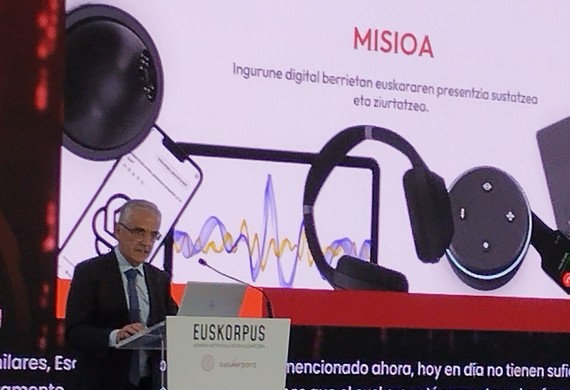Happykrazia
What do you need to be happy? If you wish, you will succeed. Everything is possible with a positive attitude. Happiness cures everything. Happiness is not destiny, but attitude to travel. Negative thinking will never give you positive life, change your attitude. Happy!
We can see phrases like product and service sales ads, self-help books, increasingly common coach services, or individual social media profiles. From the 1980s to the present day, this so-called positive psychology has been developing, which in addition to many other fields has been very related to the economy of happiness. Thus, economist Richard Layard, one of the main drivers of this trend, highlighted in 2003 the importance of collaboration between psychologists and economists to understand happiness as a whole.
However, there are those who have questioned in some way this mentality of proposing and analyzing the harmful effects that a discourse based on the positive psychology or the psychology of happiness can have, among them the so-called happykrazia. Among other things, thinking that we will have access to everything we want, says that it can lead to multiple frustrations and depression.
The 'happykrazia' states that thinking that everything we want will be available can lead to multiple frustrations
According to the current of positive psychology, the conditions that affect people to achieve happiness are: 50% genetic trends, 40% personal attitudes and 10% external conditions. If we accepted this, 90 percent of the achievement of happiness would depend on oneself and only 10 percent would depend on external factors. This focuses on individual responsibility, that is, on the values of individualism that neoliberalism repeatedly wants to promote. If he is not happy, he insists on the idea that responsibility is individual, like an island. Somehow, as if the past, the social and economic context, race, gender or nationality had no influence.
Interestingly, happiness has prevailed over cooperation, volunteering or loyalty among all the values that could be exploited. According to the book written by the authors Cabanas and Illouz, which bears the title of this article, a large industry has been created around this theme, since the discourse constructed is closely linked to consumption. In line with this idea, this thought has not defined happiness as a lack of discomfort, but as a continuous personal process to be ever happier. Beyond services and products, we have a happy life model based on concrete ways of feeling, thinking and acting.
For these authors, this discourse, which is often innovative, has also been used to construct the worker's identity. This mindset says that workers seeking happiness and a positive attitude to survive and develop in precarious conditions in many of the competitive labour markets undergoing radical change are better. So you often hear traits like autonomous, flexible, competitive, or resilient. But do they serve the whole sector? Who are these characteristics better for?
The theme of happiness undoubtedly has multiple edges. In addition, sometimes we are presented with a single magic recipe to achieve it: a type of beauty, the only successful life model, certain types of relationships, certain goods... Don't infinite obligations govern us?
Lau mila karaktere ditut kontatu behar dudana kontatzeko. Esan behar ditut gauzak argi, zehatz, soil, eta ahalko banu polit, elegante, egoki. Baga, biga, higa. Milimetrikoki neurtu beharra dut, erregelaz markatu agitazioa non amaitzen den eta propaganda non hasi. Literarioki,... [+]
LGTBIQ+ banderaren itzalpean eta mezu eta doinu antifaxistez inguratuta jarri du karpa Voxek.
Euskorpora elkartearen eta Euskorpus proiektuaren abiatzeak hautsak harrotu ditu. Pello Otxandiano EH Bilduko Eusko Legebiltzarreko oposizio buruak Euskorpusena akatsa dela uste du, "ezjakintasuna edo estrategia klientelarra". EH Bilduk galdera sorta egin du... [+]
Diario de Noticias de Álava (DNA) egunkariko langileak sinadura greban daude, eta aspaldi ari dira beren lan baldintza “miserableak” eta horiek kazetaritzaren kalitatean duen eragina salatzen. 2013tik soldatak izoztuta dituzte, eta ordutik erosahalmenaren %30... [+]
Okzitaniako Tolosako elkartea da aipatu kolektiboa eta Frantziako Gobernuak dekretuz desegin zuen 2022an. Orain Estatu Kontseilua gobernuaren erabakia egokia dela berretsi du.
Sare Herritarrak antolatuta, pasa den urtarrilaren 11n Bilboko kaleak bete zituen manifestazio jendetsuaren ondoren, berriz sortu da eztabaida, euskal presoei salbuespen legeriarik aplikatzen ote zaion. Gure iritzia azaltzen saiatuko gara.
Espetxe politikan aldaketa nabarmena... [+]
Duela gutxi think tank izateko jaioa omen den Zedarriak bere 6. txostena aurkeztu zuen. Beren web orrialdean azaltzen dutenaren arabera, zedarriak ebidentea ez den bidea topatzeko erreferentziak dira. Hots, hiru probintzietako jendarteari bidea markatzeko ekimena. Agerraldi... [+]
Eskoziako Lur Garaietara otsoak itzularazteak basoak bere onera ekartzen lagunduko lukeela adierazi dute Leeds unibertsitateko ikertzaileek.. Horrek, era berean, klima-larrialdiari aurre egiteko balioko lukeela baieztatu dute, basoek atmosferako karbono-dioxidoa xurgatuko... [+]
Karen Daniela Ágredok dioenez, atxilotu zutenean berak ez zuen ertzainik zauritu, haiek lurrera bota zuten eta konortea galdu zuen. Ondoren, Ertzaintzaren komisariaren zoruan iratzartu zen eta handik ospitalera eraman zuten.
Hiuzz + Bloñ + Adur
Noiz: otsailaren 15ean.
Non: Iruñeko Aitzina tabernan (Egun Motelak kolektiboa).
--------------------------------------------
Larunbat goiza Iruñean. Neguko eguzkitan lanera doazen gizon –eta ez gizon– bakarti batzuk... [+]


















.jpg)